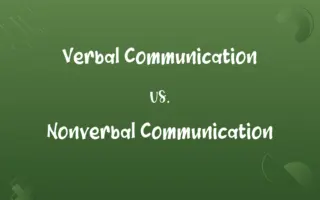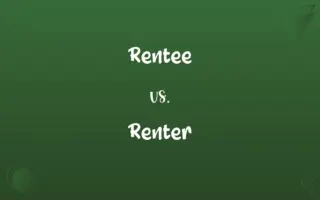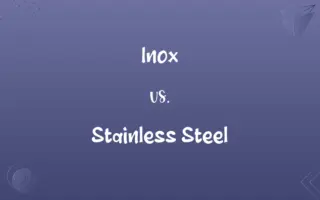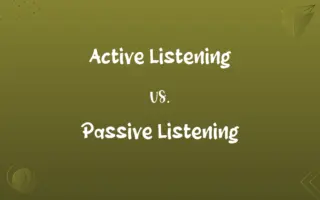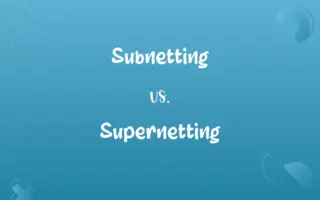Will be vs. Shall be: Know the Difference

By Shumaila Saeed || Published on February 9, 2024
"Will be" generally indicates future action or intention, while "Shall be" often implies obligation or formal determination.
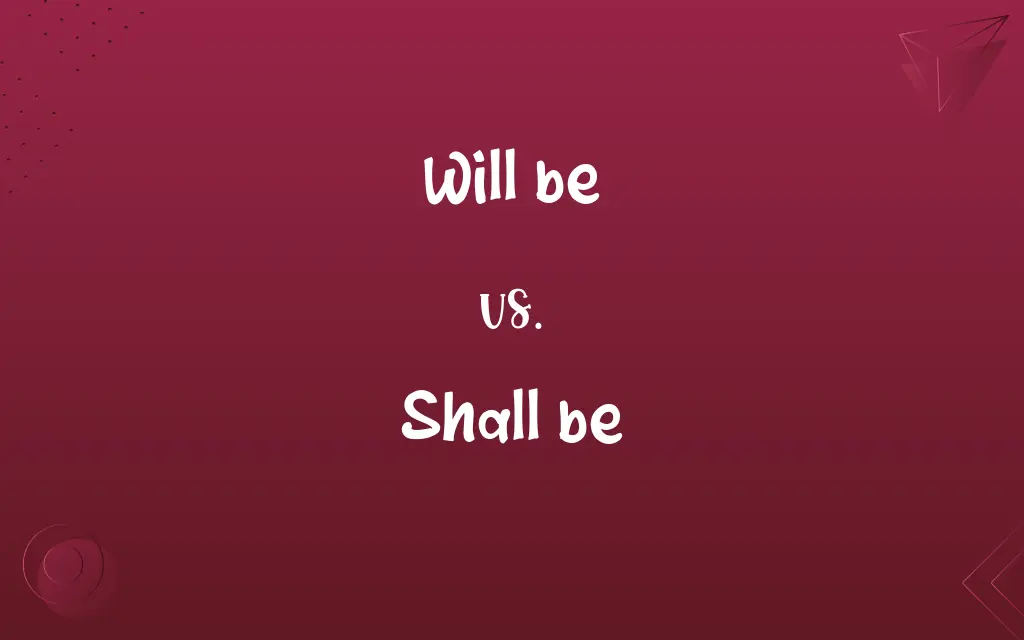
Key Differences
"Will be" and "Shall be" are both used to form future tenses in English, but their usage varies slightly. "Will be" is more commonly used to express future actions, decisions, or events that are likely to happen. It is often used in a general, informal, or neutral context. For example, "The meeting will be at 3 PM."
Shumaila Saeed
Feb 09, 2024
"Shall be," on the other hand, carries a sense of formality and is often used in legal, formal, or official contexts. It implies a stronger sense of obligation, necessity, or determination. For instance, "The rules shall be strictly enforced."
Shumaila Saeed
Feb 09, 2024
The usage of "Will be" and "Shall be" can also differ based on the subject. In traditional British English, "shall" is often used with first-person subjects (I, we) to form the simple future, whereas "will" is used with second and third persons (you, he, she, it, they). In contrast, American English predominantly uses "will" for all subjects.
Shumaila Saeed
Feb 09, 2024
"Will be" is often used to indicate willingness or a decision made at the moment of speaking. For example, "I think I will be going to the store later." "Shall be" is less about decision and more about a predetermined plan or a requirement, as in, "Participants shall be present by 9 AM."
Shumaila Saeed
Feb 09, 2024
In questions, "shall" can suggest an offer or suggestion, particularly in British English, e.g., "Shall we go?" Conversely, "will" in questions often seeks information about the future, e.g., "Will it be sunny tomorrow?"
Shumaila Saeed
Feb 09, 2024
ADVERTISEMENT
Comparison Chart
Usage Frequency
Common in everyday, informal speech
More formal and less frequent
Shumaila Saeed
Feb 09, 2024
Subject Usage
Used with all subjects in American English
Traditionally with first-person in British English
Shumaila Saeed
Feb 09, 2024
Decision vs. Obligation
Indicates a decision or willingness
Implies formal determination or requirement
Shumaila Saeed
Feb 09, 2024
ADVERTISEMENT
Will be and Shall be Definitions
Will be
Indicates a decision made at the moment of speaking.
I guess I will be staying in tonight.
Shumaila Saeed
Jan 21, 2024
Shall be
Expresses a strong intention or determination.
We shall be finishing the work by tomorrow.
Shumaila Saeed
Jan 21, 2024
Will be
Describes an action that will occur regularly in the future.
She will be teaching the class every Monday.
Shumaila Saeed
Jan 21, 2024
Shall be
"Shall be" indicates a formal or legal obligation.
The tenant shall be responsible for repairs.
Shumaila Saeed
Jan 21, 2024
Will be
"Will be" indicates something that is expected to happen.
The train will be late.
Shumaila Saeed
Jan 21, 2024
ADVERTISEMENT
Shall be
Implies an offer or suggestion, particularly in questions.
Shall we be attending the seminar?
Shumaila Saeed
Jan 21, 2024
Will be
Used for making predictions about the future.
It will be sunny tomorrow.
Shumaila Saeed
Jan 21, 2024
Shall be
Indicates a future action in a formal context.
The ceremony shall be held at noon.
Shumaila Saeed
Jan 21, 2024
Will be
Expresses what someone intends to do.
I will be completing the project by Monday.
Shumaila Saeed
Jan 21, 2024
Shall be
Used to state a requirement or rule.
All applications shall be submitted by Friday.
Shumaila Saeed
Jan 21, 2024
Repeatedly Asked Queries
Is "shall be" obligatory?
"Shall be" often implies a stronger sense of obligation or formality.
Shumaila Saeed
Feb 09, 2024
When should I use "will be"?
Use "will be" for general future actions, intentions, or predictions.
Shumaila Saeed
Feb 09, 2024
Is "shall be" still common in modern English?
"Shall be" is less common and more formal, often used in legal or official contexts.
Shumaila Saeed
Feb 09, 2024
Can I use "will be" in questions?
Yes, "will be" in questions usually seeks information about the future.
Shumaila Saeed
Feb 09, 2024
Can "will be" express spontaneous decisions?
Yes, "will be" is often used for decisions made at the moment of speaking.
Shumaila Saeed
Feb 09, 2024
Can "will be" indicate a habitual future action?
Yes, "will be" can describe actions that will regularly occur in the future.
Shumaila Saeed
Feb 09, 2024
Is "will be" appropriate for formal writing?
"Will be" can be used in formal writing, but the context and tone matter.
Shumaila Saeed
Feb 09, 2024
Are "will be" and "shall be" interchangeable?
They are not always interchangeable due to their different levels of formality and context.
Shumaila Saeed
Feb 09, 2024
Is "shall be" more common in British English?
"Shall be" is more traditionally used in British English, especially with first-person subjects.
Shumaila Saeed
Feb 09, 2024
Is "shall be" obligatory in legal language?
In legal language, "shall be" often indicates a required or mandatory action.
Shumaila Saeed
Feb 09, 2024
Does "shall be" have a different meaning in legal documents?
In legal contexts, "shall be" often indicates a mandatory action or requirement.
Shumaila Saeed
Feb 09, 2024
Does "will be" imply a decision or prediction?
"Will be" can imply both a decision and a prediction about the future.
Shumaila Saeed
Feb 09, 2024
Can "will be" be used in legal documents?
"Will be" can be used in legal documents, but "shall be" is more common for obligations.
Shumaila Saeed
Feb 09, 2024
Can "will be" express willingness?
Yes, "will be" can express willingness or intention to do something.
Shumaila Saeed
Feb 09, 2024
Can "shall be" suggest suggestions or offers?
Yes, especially in questions in British English, like "Shall we begin?"
Shumaila Saeed
Feb 09, 2024
Does "shall be" sound more formal than "will be"?
Yes, "shall be" generally sounds more formal and official.
Shumaila Saeed
Feb 09, 2024
Is "shall be" used for strong intentions?
Yes, "shall be" can express a strong intention or formal decision.
Shumaila Saeed
Feb 09, 2024
Can "will be" be used in commands?
"Will be" is less common in commands, with "shall be" being more authoritative.
Shumaila Saeed
Feb 09, 2024
Is "shall be" used in everyday conversation?
"Shall be" is less common in everyday conversation and more formal.
Shumaila Saeed
Feb 09, 2024
Do "will be" and "shall be" have different implications in questions?
Yes, "will be" in questions usually seeks information, while "shall be" can suggest an offer or formal action.
Shumaila Saeed
Feb 09, 2024
Share this page
Link for your blog / website
HTML
Link to share via messenger
About Author
Written by
Shumaila SaeedShumaila Saeed, an expert content creator with 6 years of experience, specializes in distilling complex topics into easily digestible comparisons, shining a light on the nuances that both inform and educate readers with clarity and accuracy.



